Zainab Oluwatobi dreamed of a fulfilling career, but like many young graduates in Africa, she struggled to find her footing.
With a bachelor’s degree in engineering from the University of Ilorin, she had the foundational knowledge, but she lacked the specific skills and experience needed to excel in her field.
That all changed when she discovered the Women in Power Training (WIPT) program in 2020, which gave her the chance to learn about renewable energy and gain the expertise required for success in this rapidly growing industry. Through the program, Zainab found her passion for designing solar systems and gained the confidence to pursue her dreams.
Zainab’s success story is a testament to the power of job training and skills development for female engineering graduates.
Yet, UNESCO reports that women's representation in science and engineering remains below 20%, and in Nigeria, it is even worse with less than 10% studying engineering at a four-year university.
This shortage of women engineers in our university poses a great challenge to one of the pressing issues of our time—the energy transition.
Dealing with legacy challenges
The energy transition—the moving away from hydrocarbons to renewables to stop the climate crisis—is the defining challenge of our time, and Africa needs the best minds to tackle it.
Decades of research prove diverse teams are essential to solving complex problems, offering broader perspectives and creative solutions. And now, there’s an opportunity to remedy the mistakes made in the legacy oil and gas industry.
The renewables sector is already more inclusive, with females representing about 40% of the workforce, which is double the share of women employed in the oil and gas industry. But there's always room for improvement, where African women need to emerge as equal leaders, decision-makers, and participants in driving the energy transition across the continent.
But there’s a challenge.
Not only does Sub-Saharan Africa see a low percentage of women pursuing engineering degrees, but due to the high unemployment rate and scarcity of job training programs, the few women engineers are often lost to other industries like tech.
Moreover, Nigerian universities prioritize theory over technical skills, and even if female engineering students secure a university internship, they often struggle to gain hands-on experience due to systemic biases. This lack of experience can make or break a career in solar engineering.
How WIPT Helps
When we publicly announced a target for women to make up 40% of our team by 2024, especially in leadership and technical roles, we knew we couldn’t passively wait for CVs from perfect junior engineering candidates to land in our inbox. We had to be hands-on and proactive, nurturing high-potential graduates into outstanding female solar engineers.
And so, the vision for a female engineers training program started to take shape based on four principles:
- Holistic training: Help develop job skills and personal growth for engagement, productivity, and job satisfaction.
- Inclusivity: Build a secure job environment valuing everyone's opinions and invest in trainees' success.
- Fearless learning: Create a safe space for mistakes and learning opportunities.
- Courage building: Nurture trainees' confidence to handle complex projects confidently.
We aim to provide comprehensive training for each of our business units, equipping our trainees with the skills and knowledge necessary to master the entire business lifecycle. From leading energy audits to determine the energy load of a new client, to installing solar systems and setting up inverters, to analyzing data from our network operations center, our trainees are fully prepared to prevent system failures before they even arise.
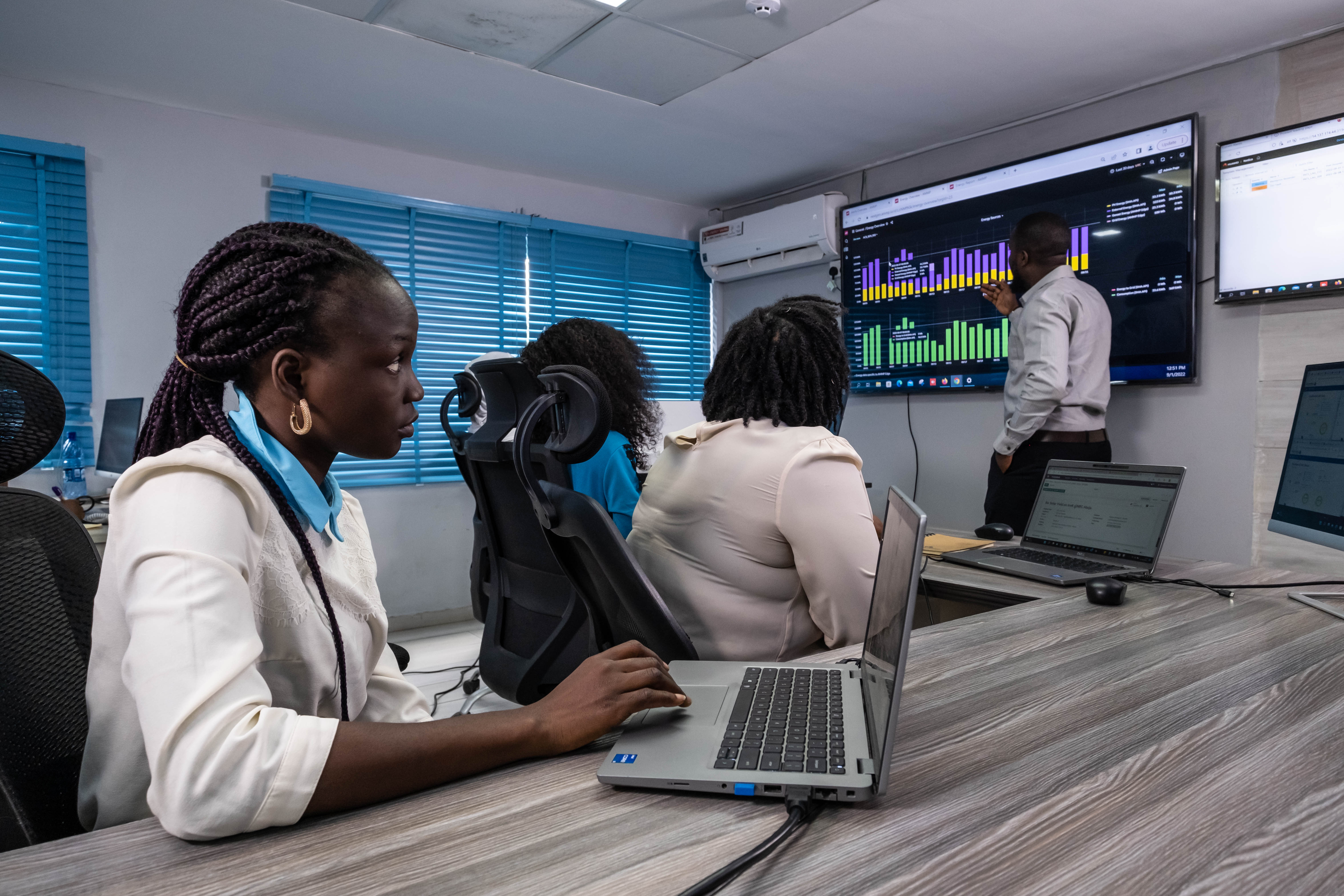
Our first cohort of eight women, who completed the program in 2019, went on to work for the company full-time, demonstrating the program's success.
4 key WIPT trainee characteristics
Over the years, twenty women have gone through the WIPT program. Many common trends emerged that shaped the trainees’ interest in engineering, including:
1. A sense of purpose
As the WIPT trainees embarked on their learning journey, they were driven by a desire to make a positive difference in the world around them. Two remarkable women, Miracle Adogamhe from the first cohort and Aishat Rufai from the second cohort stand out as shining examples.
Miracle chose to pursue electrical engineering to tackle the many problems she saw plaguing Nigeria's power sector, while Aishat had always been fascinated by power sources since childhood. It was not until her father told her about the 24/7 power supply in the US that she realized the magnitude of the power problem in Nigeria, and she knew then that she had to make a difference.
2. Self-starters and ingenuity
Our trainees are ingenuine and self-starters, which is what makes them so passionate about Africa's energy problems. For instance, one of our first cohort trainees, Adaoma (Ada) Onyeukwu, started her journey in electronics with a vocational course where she learned the basics of consumer electronics and circuit design. Meanwhile, our second cohort trainee, Izoduwa Ero, showed talent for innovation when she created a mini wind vane with her fellow students at the University of Benin.
3. A love for mathematics and science
Many trainees showed a flair for math and science early on, with their teachers encouraging them to pursue medical or engineering careers. For example, a trainee from our third cohort, Evelyn Ugbe, had an early fascination with machines. She always wanted to go deeper to explore their inner workings, sparking an interest in physics and eventually electrical engineering.
4. Hailing from a family of Engineers
Many trainees come from a family of engineers and have a love for fixing gadgets. Boluwatife Olumide from the second cohort is a great example. Hear what she says about her family: “Our first inverters were when I was 9. Being a contractor, Dad built everything from scratch—resistors, inverters, and other things.”
Theory vs. practical engineering knowledge
Our trainees, although motivated and full of potential, were raw. They didn’t know how to apply the theoretical knowledge they had learned in university. Once we identified this gap, , we took a proactive approach to identify talented female electrical engineers at the university level and provide them with crucial job training to excel in renewable energy.
Through this effort, we discovered the shortcomings of Nigerian engineering education, particularly in terms of mentorship and hands-on training.
Inadequate hands-on knowledge
Engineering education in Nigeria primarily emphasizes theory rather than practical training.
Due to the large class sizes, students have limited opportunities to conduct experiments during laboratory sessions. Furthermore, many engineering institutions in the country lack the necessary infrastructure and equipment to provide high-quality education. The inadequate power supply further hinders practical training opportunities. Many of our trainees studied in their labs by candlelight.
Insufficient job training
There's a notable scarcity of job training and internships in the Nigerian engineering education system. On-the-job training is not typical in Nigeria, and the Students Industrial Work Experience Scheme (SIWES) is rife with shortcomings. As a result, students have limited access to handling industry machinery and equipment, which hinders their professional development.
Outdated curriculum
The curriculum used in many engineering schools in Nigeria is outdated and fails to reflect the latest industry trends and requirements. This creates difficulties for graduates to compete effectively in the job market.
These problems have led to a significant skills gap in the engineering sector in Nigeria, grossly restricting the country’s capacity for innovation and technological advancement.
WIPT's holistic technical and skills development approach
Introducing practical knowledge and experience to Africa's engineering education has become critical in today's competitive job market. To address this need, we created the WIPT program to train female engineers in technical and soft skills over the course of one year. Depending on the trainees' performance, we offer them a job upon program completion.
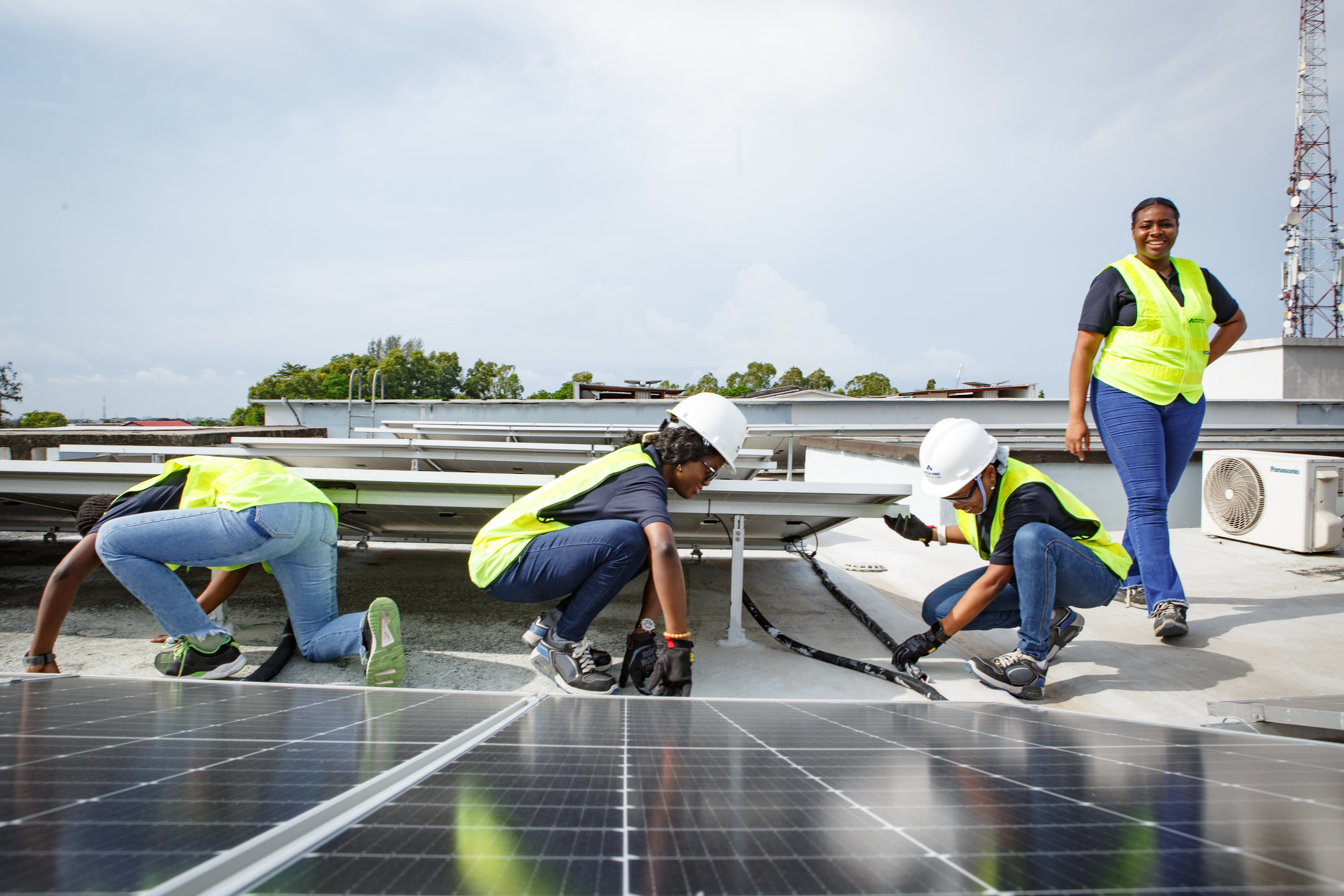
The WIPT program comprises various rotations, each designed to equip trainees with the necessary skills. During the sales engineering rotation, trainees learn to prospect clients, conduct site audits, design customized installations, and acquire business writing, etiquette, and negotiation skills.
In the project engineering section, the trainees gain hands-on experience in installing solar energy solutions. Additionally, in the field service engineering rotation, they learn maintenance and operations (M&O) as well as cleaning and maintaining solar panels.
Plus, thanks to a holistic approach to training, the trainees can also develop soft skills, such as confidence, problem-solving, adaptability, teamwork, and interpersonal skills, while building their technical skills.
WIPT has been a stepping stone for female engineering graduates seeking to acquire new skills to take advantage of the opportunities in the renewable energy industry. We are proud to present a selection of our past trainees who have completed the training program and are valuable team members at Daystar.
Meet our successful trainees: inspiring stories of growth and achievement
From university graduates to seasoned professionals, these trainees have used the knowledge and skills gained from the program to advance their careers.
Ada Onyeukwu
Meet Ada, one of the outstanding trainees from Cohort 1 of Daystar's WIPT Program.
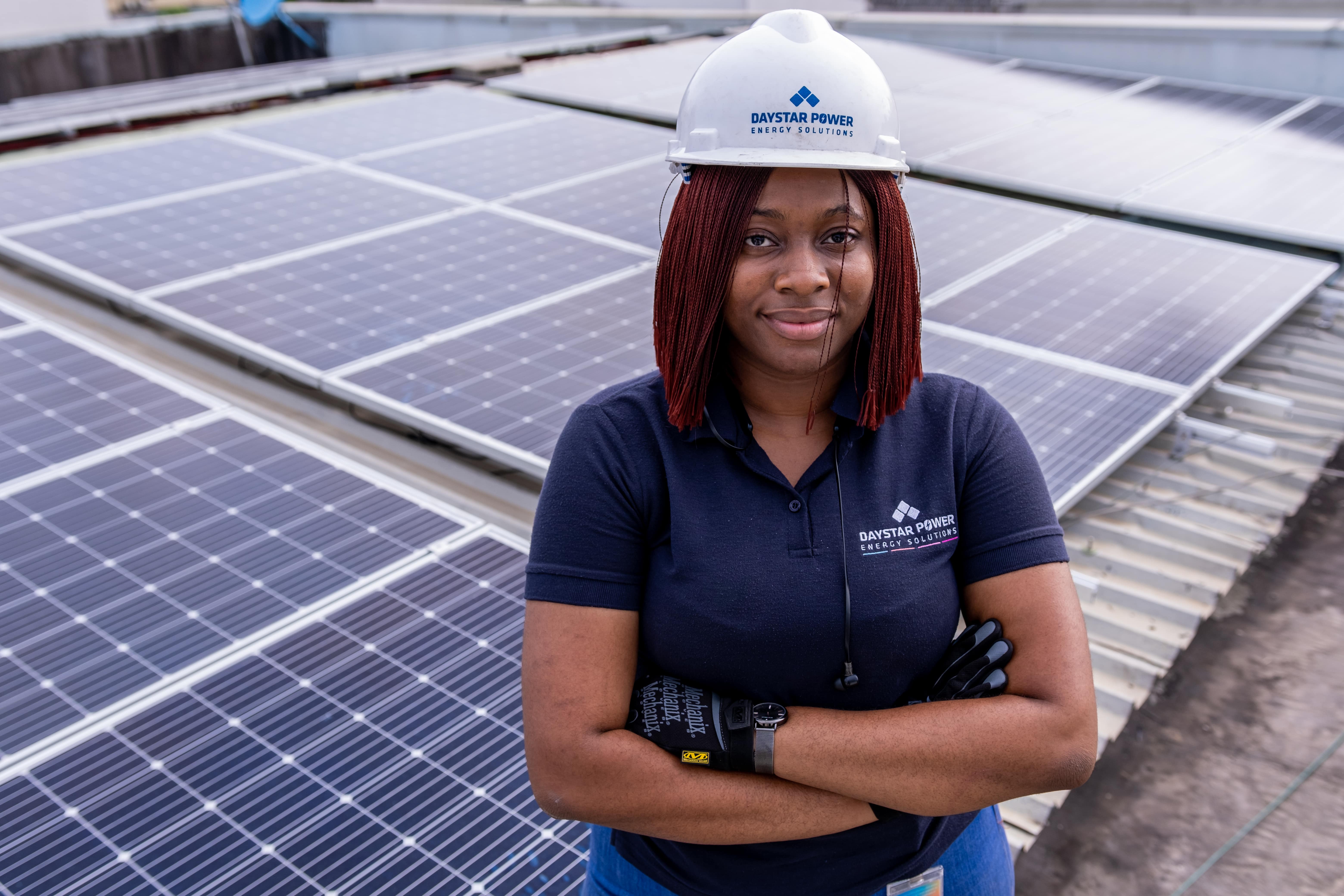
Despite her initial desire to study medicine, she pursued electrical/electronics engineering at University of Lagos (Unilag), where she was one of only a handful of women in her class. But Ada's university education alone wasn't enough. "There's a gap between the job and education. You do practicals, but there is no hands-on practical knowledge," she says.
Through WIPT, Ada gained hands-on experience and developed skills that have helped her excel in her career. She moved through all department rotations before joining our installations team and has since become a valuable asset to our organization.
Two experiences during the training program that stood out for Ada were working on the UAC Dairies project and installing a solar installation at an Ecobank branch in Aba.
Now Ada is more confident, outspoken, and can take charge of any project.
Folakemi Suulola
Folakemi is an engineering student from our second cohort. 2.
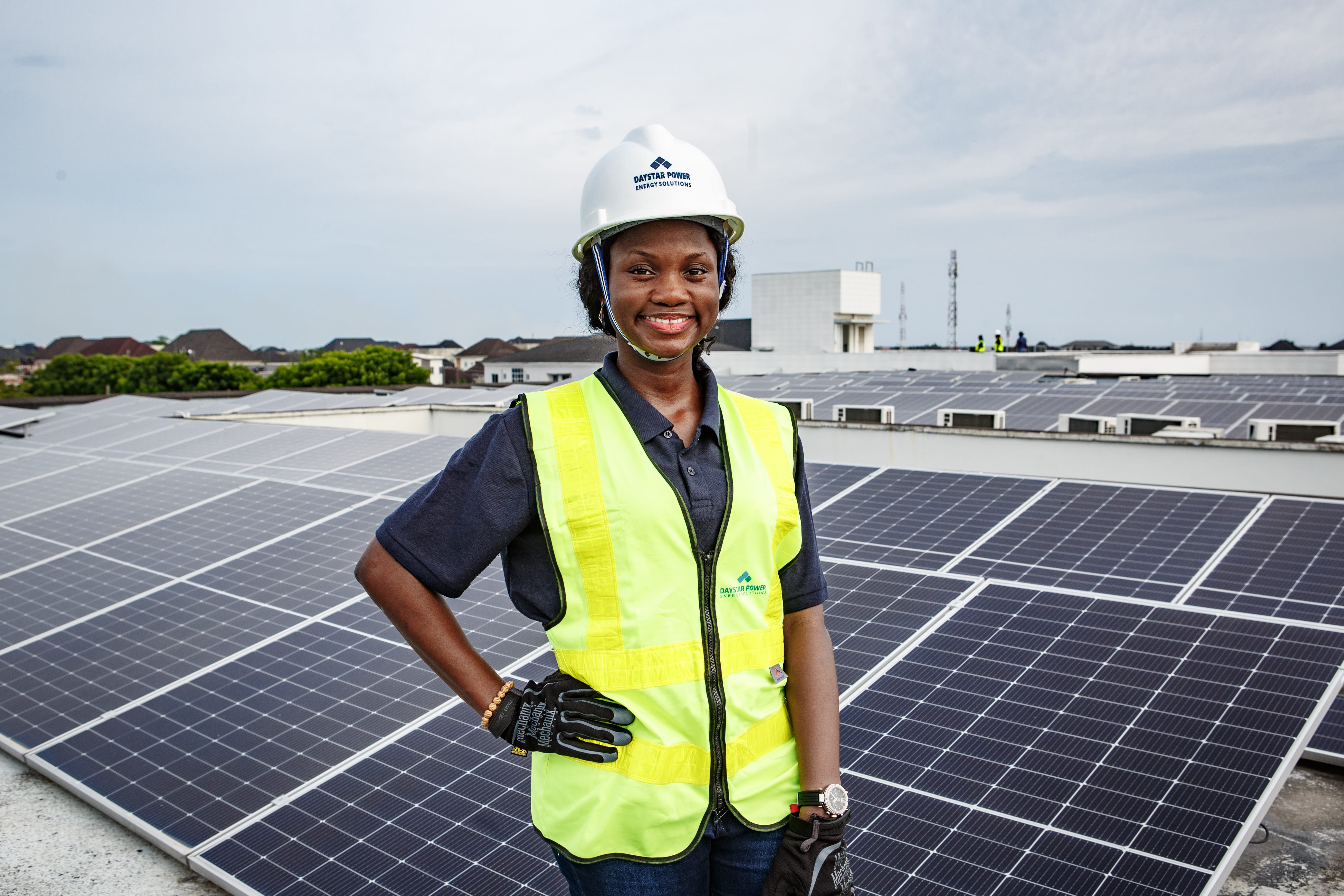
Despite wanting to study law in high school, her teachers encouraged her to pursue science due to her aptitude in math and physics. When she looks back at her university days, Folakemi describes it as "full of learning" and not just for academics.
For one of her SIWES internships, she toured a 1.2MW solar installation at a water treatment plant outside of Abuja After seeing the benefits of solar energy up close, Folakemi saw its opportunity in Nigeria and how she should take part in it — but she also knew she needed to improve her technical skills and gain more hands-on experience.
Folakemi found the solution in the WIPT program, where she could test her knowledge and gain critical technical skills that she never had the opportunity to hone before.
She loves the program structure and the opportunity to thrive as a woman engineer. While being introduced to all the company business units, she has her sights set on sales engineering because she wants to be a "rain-maker," wanting to play her part in propelling Africa towards renewable energy adoption.
Joy Irodia
Joy is a bright and determined electrical engineering trainee from our third cohort.
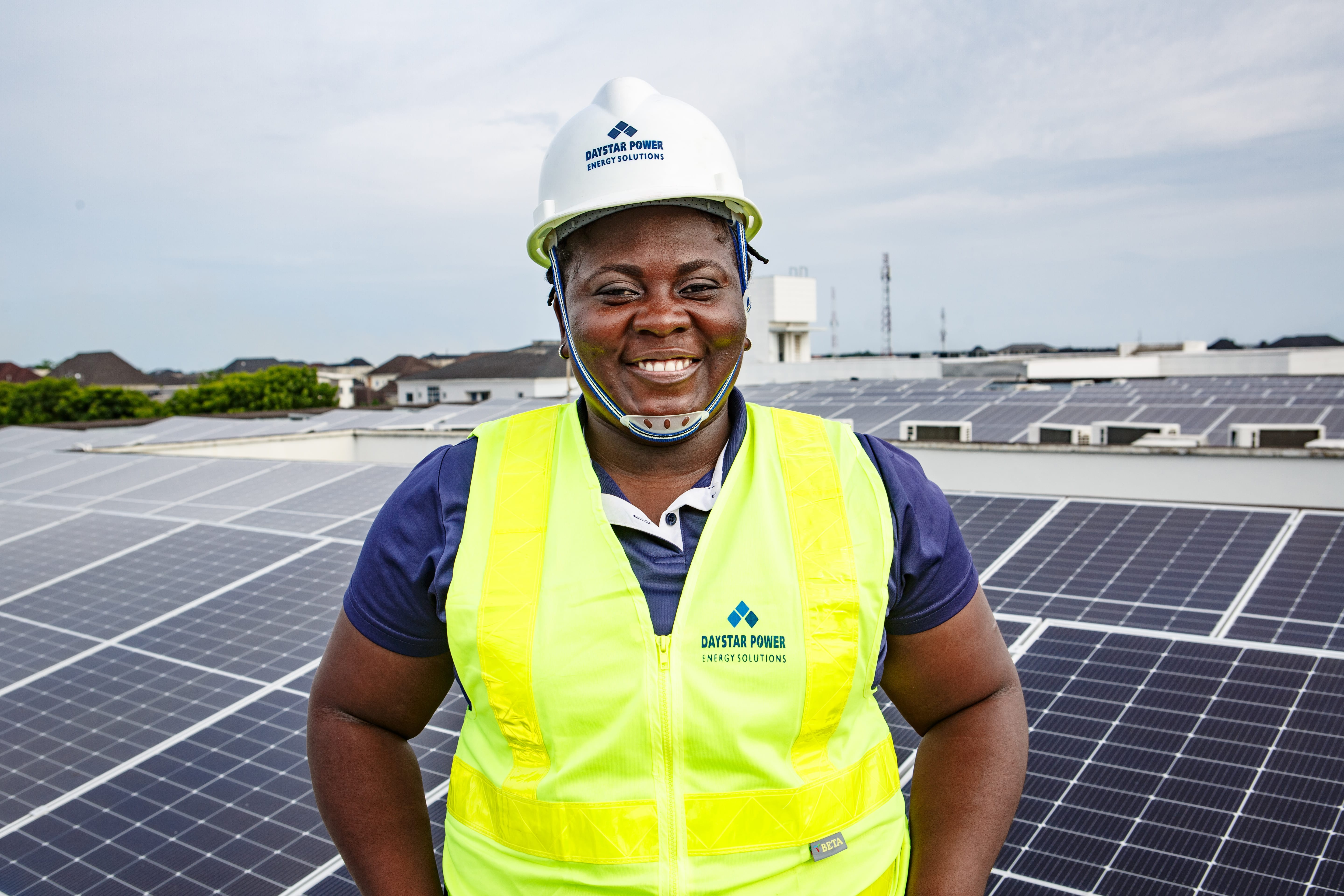
From her secondary school days, she was fascinated by circuit connections – she knew she wanted to enter electrical engineering early on. However, her university education left her feeling unfulfilled as she learned few practical skills due to limited lab resources.
Determined to bridge the gap between theory and practice, Joy enrolled in the program and found the missing link she was looking for. What thrilled her most was everyone’s dedication to her personal growth — and seeing her thrive.
Joy's passion for renewable energy was ignited during the program, and she developed a strong interest in working in the field. Her favorite part of the training was working in the field service, where she had the opportunity to visit different sites and gain hands-on experience.
Even now, as a trained professional, Joy continues to work on installations and take on exciting projects.
Conclusion
Zainab started as a student and now she's a superstar, doing what she loves and helping others grow. It's amazing to see her rise to the top of the project installation team and see the once student help new trainees acquire new skills, such as using AutoCAD.
Like Zainab, you too can carve your way into a male-dominated industry with WIPT. You'll go beyond professional growth and become empowered to make a positive impact on the world around you. As our past trainee, Bisola says, "I've gotten to grow — but not just professionally."
Apply for the 2023 WIPT cohort to reach your full potential and become a leader in Nigeria’s growing and dynamic renewable energy field.
